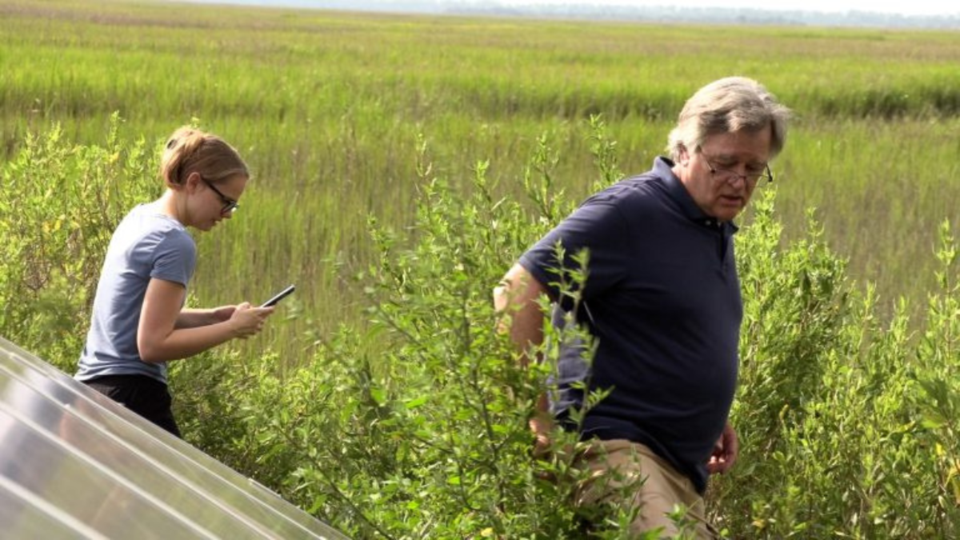One Georgia Southern University graduate student has been exploring the coastal Lowcountry. She is also visiting residents’ homes to reveal the maritime history where families live.
Public history major Sadie Ingram is studying the history of Gullah Geechee oystermen. She is also studying their role in developing the region both economically and culturally.
“I didn’t realize exactly how broad the subject was when I first started it,” Ingram said. “Something I’m really interested in is looking at the effects of government regulation on independent oystermen and then the big canneries, and also looking along race lines. How did these government regulations affect African-American oystermen versus white oystermen?”
Students like Ingram get opportunities for hands-on experiences to bring their research to life. Not only do they become experts in the written research, but they also interact with the topic in their own backyards.
Kurt Knoerl, Ph.D., an assistant professor in the Department of History, conducts much of the fieldwork.
Ingram said she wanted to find her place in studying Gullah Geechee maritime archaeology. This is after hearing about the research initiatives of Knoerl and other Georgia Southern faculty members.
“This is an understudied area that we hope to shed a lot of light on by doing this kind of project, and going to as many of these kinds of sites as we can,” Knoerl said.
“We are doing the historical background research and combining the location information, the geospatial information and the natural environment with the historic documents. Putting those things together is a powerful combination.”
Knoerl is based primarily on the Armstrong Campus in Savannah. He has a history of exposing his students to adventures in the Lowcountry.
His students have taken several trips to Gullah Geechee sites. They go to these sites to find artifacts and study the maritime archaeology of the region.
His work has drawn the attention of national media companies and documentary producers. He also has a strong reputation among his students.
“Sometimes you have questions while you’re reading documents or about what was going on in the past,” Knoerl said. “Until you put yourself in the physical environment that it was actually occurring in, sometimes you won’t even know the questions or the answers that you’re missing until you get out there and see it.”
Some students based on the Statesboro Campus enjoy the exploratory trips in the Savannah area. This is because it adds that extra layer to their projects. Ingram is one of those students. She said it not only helps her apply her research, but it opens unexpected doors to advance her research.
“When you interview somebody and their family’s history, that’s not something that you always get that’s written down,” she said.
“People don’t always just write down what their grandparents did or how these things came to be in their family. That’s something that you can find by going out to these different sites as well and getting those oral history interviews with those people.”
All of Ingram’s research will be completed next year. It will be put on display within the Georgia Southern University Museum’s larger exhibit. This exhibit is called “Charted Worlds: The Cultural History of Georgia’s Coastal Plain.”




